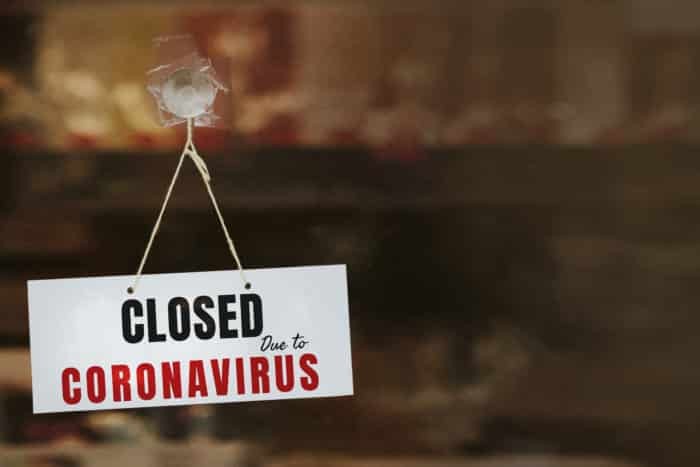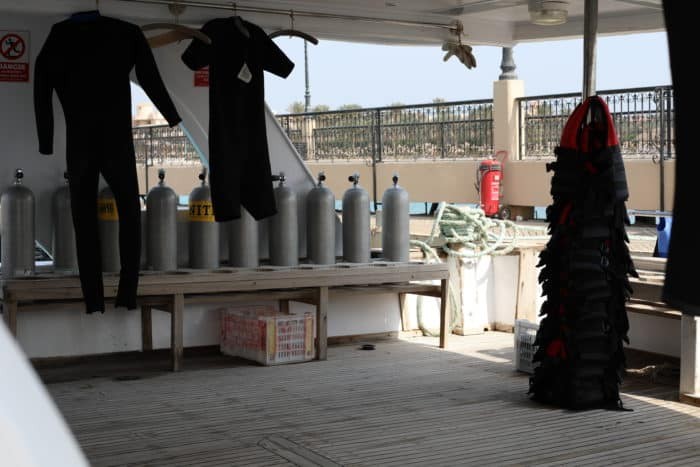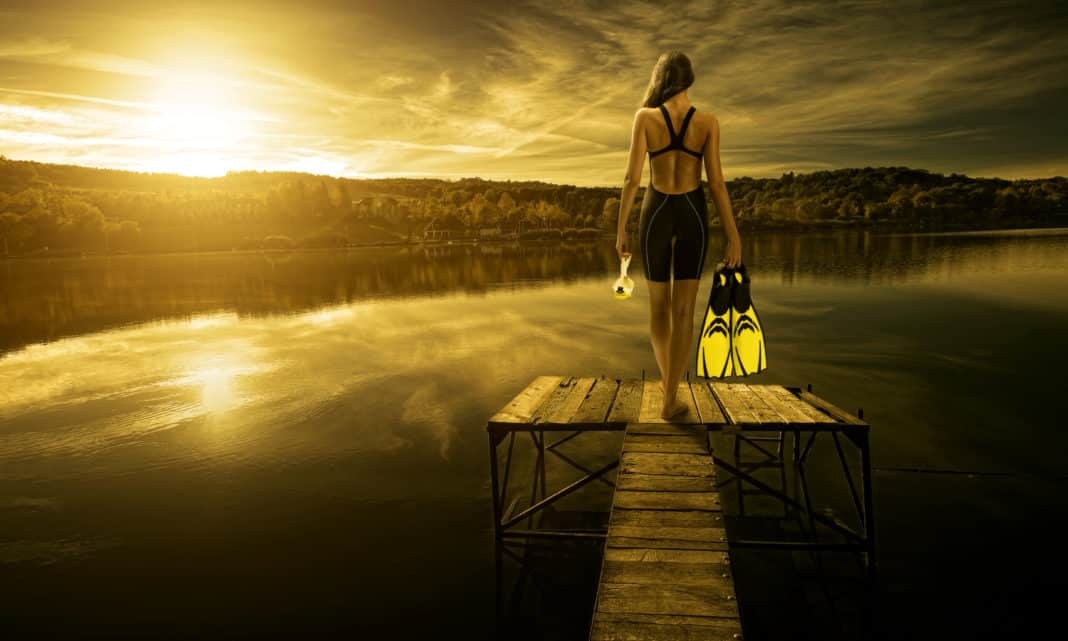Additional reporting by Michael Menduno
With large portions of the world on lockdown and air travel and hotels massively disrupted, most of the diving industry has seen their revenues come to a complete stop. “Businesswise there is nothing going on,” said Randy Thornton, co-owner of SubGravity, which manufactures diving equipment, the TEKDive USA conference, and retailer Dive Addicts, based in Salt Lake City, Utah.
“All diving is shut down, even in Florida. Retailers and boats are closed. Travel is on hold, so there is no service. We’re not seeing people purchasing add-ons or parts and I’m not getting calls from retailers for stock and supplies. Divers are hanging on to their money. So many people are out of work,” he said. Thornton and his family were forced to postpone this year’s TEKDive USA conference, which was scheduled to be held in Florida in late April, until next year.
The COVID-19 pandemic arguably represents an existential threat to the diving industry. Manufacturers with international diving brands began feeling the impact early in January when dealer orders from China and Asia dried up. Then the pandemic spread to Europe, the Americas, and other countries. Dive shows and camps in the US and Europe were canceled or postponed, and dive retailers, which represent the main point of contact with consumers, began to feel the brunt of what some have dubbed diving’s “Zombie Apocalypse.”
According to a recent survey of nearly 200 US diving retailers posted in late March by Dive Center Business magazine; 42.9% had closed their doors, roughly a third laid off staff and or cut store hours, a whopping 67% had to cancel training and over 90% of dive centers canceled both domestic and international dive trips. The result is a wholly unprecedented situation, and that was before the lockdowns really started to come into existence.
An April recent survey of 178 global dive businesses Cline Research Group indicated that 96% of all diving-related businesses expect near-zero income for the foreseeable future and 74% expecting this to be the case till at least June.
“I have never seen anything like this in 42 years in business,” explained Spencer Slate of World-famous Capt. Slate’s Scuba Adventures in the Florida keys. “If this goes through June, a lot of shops will be gone. Hopefully, we will still be here.”
With international air travel considerably slowed or at a standstill, resorts and liveaboards are also struggling to survive the wave of cancellations and lack of business. Many dive resorts are entirely shut down. “The island of Bonaire is completely closed,” said German Mr.G Arango, who oversees technical diving at Buddy Dive Resort. “Our last guest left two weeks ago. The place looks like a ghost town,” he said.
Liveaboards have been particularly hard hit. Explained Capt. Dan Johnson, owner/operator of MV Oceania in Papua New Guinea, which launched less than a year ago, “Our biggest challenge is cashflow. We’re fully booked from September to December, and next year is already 80% capacity. But what are we going to do for the next six months?”

The fate of many operators may likely rest with their governments. “The bail-out packages that governments put in place will likely decide how many small businesses come out the other side,” explained Nick Darling, managing director of the Volivoli Beach Resort in Fiji, which has closed temporarily. “Some, possibly many, will not survive.”
In the absence of orders, many diving manufacturers have cut back hours and staff, are building inventory, and or are working on projects like their websites, that they hadn’t had time to get when busy. Other manufacturers, deemed non-essential, have temporarily been shuttered. Quite a few have joined in the fight to help save lives threatened by the pandemic.
Though training agencies have seen a steep drop in revenues, most tend to have smaller HQ staff, who are now working from home and have some resources to help weather the storm. “There is positive energy in our house. We are working for the long term, setting up for tomorrow. We’re not going to just sit here for three months waiting for it to end,” explained Darren Pace, marketing director for International Training. The training organization is pushing out a series of free online scuba courses for retailers to engage their customers.
Meanwhile, RAID took an unprecedented step and announced that it was providing free access to its entire eLearning course catalog at the diver, instructor and instructor trainer (IT) levels. Accordingly, individuals can do their remote learning in preparation for engaging with a RAID instructor and or instructor trainer, and a dive center, and they don’t have to pay anything until they do. What’s more, the offering is permanent and will continue after the pandemic. “We’re future-proofing our business as the world goes fully online,” RAID President Paul Toomer explained. “It empowers our instructors and dive centers to more easily engage and prep their customers remotely before they begin their actual training.”
In addition, PADI launched a series of business “Survival Training” webinars to help its dive centers, resorts, and professionals cope with the fallout from the growing pandemic. The Diving Equipment and Marketing Association (DEMA) has also provided on an on-demand webinar to help US dive businesses apply for the newly launched Federal Payroll Protection Program.
Being membership and insurance-based, the various Divers Alert Network (DAN) organizations tend to be well-resourced. Hotlines are operational, but there are obviously fewer divers involved in emergencies. DAN Europe’s head of marketing communications, Cristian Pellegrini said that their team is still assisting emergencies and people stuck abroad and is actively managing cases. However, the fact that few are diving has freed up some bandwidth.
“We are working on things that are hard to do when we are busy assisting people and focused on providing more services to our member community. We are investing in the future,” Pellegrini said. Look for more online content, including a webinar series, which is now in the works.
What does the future hold for divers and the diving industry?
There’s no question that divers, by their nature, will go diving as soon as they can get back to the water. It’s just a matter of time. The more difficult question is when, and what shape will diving our infrastructure and services be in when that time comes.

Is This Really An Existential Threat?
That all depends on how long the coronavirus crisis lasts. One thing is for sure, though – whether the coronavirus pandemic continues two months or two years, the way that we live and go diving will be altered irrevocably.
The reality is that nobody really knows, but the growing messages from experts are that this could be something we have to live with elements of restrictions we’ve come to view as the “new normal” for some time to come.
Medical experts believe a vaccine for COVID-19 is still at least 18 months away. The impact of social distancing and flattening the curve (two phrases none of us had heard of only a few weeks ago) have been helping keep everyone safe. Still, it also has had a massive impact on society and business at large.
Ultimately diving is a discretionary spend activity – it cannot be seen as an essential activity for the majority of divers. Spending on diving trips and equipment goes up in affluent times as people have more time to spend on activities, and goes down in harder times like the 2008 recession. However, this is an unprecedented time, with economists talking about unemployment at levels not seen since the Great Depression of the 1930s. Not only can people not get out to dive for safety reasons, but they also may not have the money to spend even if they could.
Diving has also seen considerable growth as the airline industry has introduced cheaper ways of getting us to those far-flung places that we want to go diving in. The running joke heard in diving circles of “are you a warm water diver” suddenly takes a somber perspective if airlines no longer exist to take you to your favorite destination.
“The future of the dive industry is almost entirely dependent on the aviation industry’s robustness. If flights become rare and expensive, the dive industry will suffer in all but a few areas” Fourth Element’s, Jim Standing pointed out.
The real challenge here is that a large percentage of the industry is run by hobbyist individuals who are just not in it for the money. Many of the dive businesses are run on low margins by people as passion projects, sometimes even second businesses. This, in turn, means that many dive businesses have no cash reserves and little investment. In this current climate, where it is increasingly looking like restrictions on movement and group activities will take months to be eased, is going to see large numbers of dive businesses starting to go under.
As one retailer explained to us, “I expect that the entire summer and early international travel season will be lost this year. At best, I think Thanksgiving and Christmas travel will be the soonest we can expect to return to normal travel bookings.”
This then has a knock-on effect on the larger agencies and manufacturers. The whole system has been set up to work on a dealer network. Neither agencies nor manufacturers sell directly to the actual diver, they sell their wares to the owners and instructors of these diving businesses who then sell onto the public. If the dealer network is significantly reduced, then the income for the big brands is decreased as well.
Talking to industry professionals and business owners, the same situation is repeated all over the world, although a lot of businesses are hoping this is a short term situation. “I am guardedly optimistic that this will be a few weeks to two months, not into August,” commented Mark Messersmith, COO of Halcyon Dive Systems.
This all can seem terribly depressing, as we potentially see large swathes of the industry we love possibly disappearing. We are also seeing resilience and hope – as Nick Darling from Volivoli describes, “During the following months we are going to see the true salt of people, there will be incredible examples of humanity, caring, survival, clever entrepreneurship and love.”

What Can You Do To Help?
We are living in unprecedented times, and the critical thing right now is to be safe and take care of your loved ones as we work through this time together. Stay home, stay safe, and flatten the curve. Right now, this is everyone’s main priority, and there is no doubt we will emerge as more empathetic, connected, and ultimately a closer-knit society.
There are things that you can do as a consumer to help, although, and we can’t stress this enough, only if you are financially secure.
While we can’t go diving right now as most dive stores are closed, you can still contact your local dive shop and see if you can book your next equipment service and pay for it in advance. You are going to need it, and if this keeps the dive shop going now, they will be happy to do the work later. If you can drop your regs off for service now, do so. Get them done while you cannot use them, and put some money in the pocket of your dive shop owner.
Many of these shops make their living from travel. If you have booked a holiday that is now jeopardized and you can, and the dive shop owner is willing to facilitate this (most are), don’t get your money back – re-book for later. The same applies to resorts and liveaboard companies all over the world. You can’t travel now, but by keeping your money in these businesses for when they are back on their feet, you can then take advantage and visit them later.
We’ll also need some new kit for when we go diving again. Why not buy the kit you need now. There are even some fascinating modern developments such as Fourth Element offering the ability to get fitted for a custom drysuit online.
Most agencies are rapidly moving education online so you can buy and take many courses online – PADI, SSI, RAID, TDI/SDI/PFI, and BSAC have all put some to all of their training online. This keeps your training going and keeps your mind dive fit, even if you can’t actually get in the water. While you are there, you should also renew your diving agency qualification and fees.
You’ll have noticed that a large number of print magazines have stopped printing and gone digital. This has helped reduce costs as their income is based on advertising and almost all budgets have been reduced to zero. Most hope this is going to be a temporary measure. Still, to show that you value the journalism that they produce, why not renew your subscription now and look forward to the inspiration and escapism you’ll get from reading your favorite magazine.
Talking of escapism, there are no end of free webinars and live video interviews going on. Some of the biggest heroes of the diving world can be found on webinars by Dive Ninjas, Dirty Dozen Expeditions, Diver Medic, Deeper Discussion and Shallow Thoughts, Divesoft Talks Live, and Shark4Kids to name a few.
One thing you don’t need to do is go out and buy more toilet rolls, though.
A Note To The Industry
We wanted to end with a note to the industry. We have spoken to many of you over the last few weeks and whilst so many of you are hurting, we have also seen huge amounts of goodwill and banding together to support each other in these tough times. It is heartwarming to see and hear, and we encourage you to keep supporting each other.
There is no magic answer to this crisis. We encourage you to prepare for long term disruption but hope for near-term relief.
We see that there is lots of help available – from local government support, government-backed loan schemes, and business webinars from the likes of PADI and DEMA, and many dive businesses have applied to access these resources.
Try to use this time to innovate and keep client engagement going. Divers and customers will get back in the water and want to go diving. While we’ve seen a lot of webinars going on, give some thought to how best to keep things fun and interesting for your clients. Fourth Element’s Underbathwater Photographer of the Year competition and International Training’s #DiveStrong initiatives are great examples of showing support in unique ways.
Find Out More In Our Diving & Coronavirus Information Area
Additional reporting by Michael Menduno


